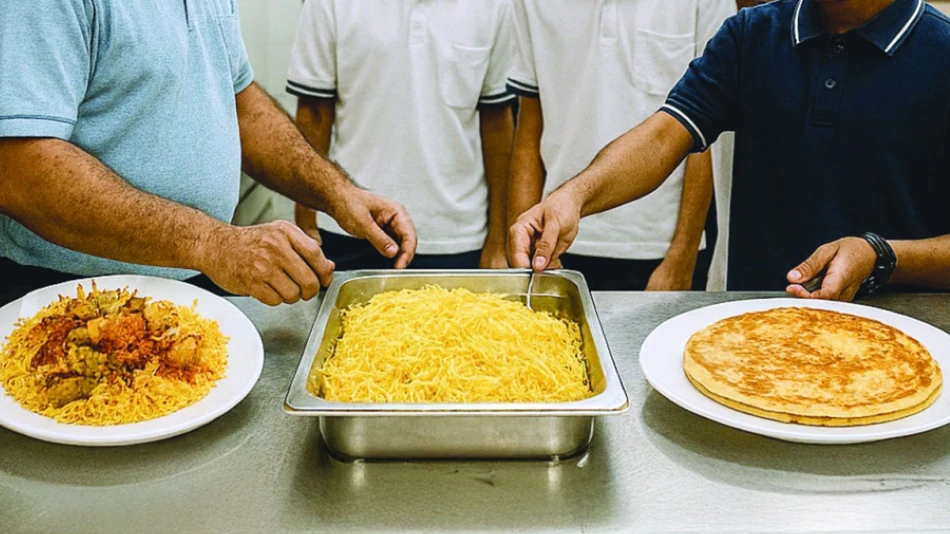
Student Favorite Biryani Dominates School Cafeteria Fare, Balaliit and Jibab Also in High Demand
School cafeterias across the UAE have undergone a major transformation this academic year, introducing traditional Emirati dishes alongside healthy options. The change came after educational leaders discovered that limited menu options weren't meeting students' needs, prompting a complete overhaul that now sees students flocking to cafeterias for familiar flavors from home.
The shift started when school administrators made field visits and found cafeteria menus lacking variety. Teachers and school communities suggested adding more diverse meal options. Those recommendations quickly became reality, with both government and private school cafeterias now offering everything from fresh salads and grilled foods to traditional dishes like biryani, balaleet (sweet vermicelli), and chabab (pancakes).
Here's what makes this interesting: students are gravitating toward the traditional foods despite having plenty of healthy alternatives. Biryani sells out within minutes of recess starting, especially among male students. Younger students prefer balaleet and chabab because they're lighter and remind them of breakfast at home.
The pricing strategy works too. Meals range from three to nine dirhams, making them accessible to all students. School administrators designed menus to meet nutritional balance standards, including varied salads, fresh fruits, and dishes prepared using healthy cooking methods like grilled chicken and boiled potatoes, plus natural juices and dairy products.
Maryam Mohammed, a nutrition supervisor at one school, explains that despite having diverse food options available, traditional foods see the biggest demand. "Most students prefer chabab and balaleet because of their beloved traditional flavor and lightness suitable for their ages, while biryani remains the most requested, especially among boys," she says.
The cultural connection runs deeper than just taste preferences. Aisha Al Zeyoudi, a school principal, notes that introducing national dishes like balaleet and chabab gives students a sense of warmth and connection to home. Many now eat familiar meals similar to their home breakfast, which has boosted their confidence in the cafeteria and given the experience a social and cultural dimension.
Student complaints about cafeterias have nearly disappeared, Al Zeyoudi adds. Previously, complaints were frequent due to limited choices or rejection of certain items. The cafeteria has recorded a notable increase in daily purchase rates, and the school conducts periodic surveys at the end of each semester for parents to evaluate food lists and service quality.
The social aspect matters too. A student affairs official at a government school describes beautiful daily scenes of students gathering during recess around plates of biryani, sharing them like a small group meal. This reflects the spirit of familiarity and sharing within the school.
From a health perspective, pediatric kidney consultant Dr. Zubaida Al Ismaili confirms that school nutrition represents a central factor in supporting students' physical and cognitive growth, directly impacting their academic achievement and health. Recent studies indicate that balanced meals containing complex carbohydrates, proteins, fruits, vegetables, and calcium sources give children sustained energy and improve their ability to concentrate throughout the school day.
The World Health Organization recommends children consume diverse foods daily from all basic food groups while reducing salt, sugar, and saturated fat consumption. The American Academy of Pediatrics emphasizes that daily sodium consumption for school-age children shouldn't exceed 1900-2300 mg, alongside the importance of regular water drinking.
Dr. Al Ismaili stresses that providing school meals that consider dietary diversity and cultural considerations, alongside promoting nutritional awareness programs and early detection, represents a strategic step for improving students' general health and contributes to creating a more positive and stable educational environment.
Most Viewed News

 Sara Khaled
Sara Khaled






